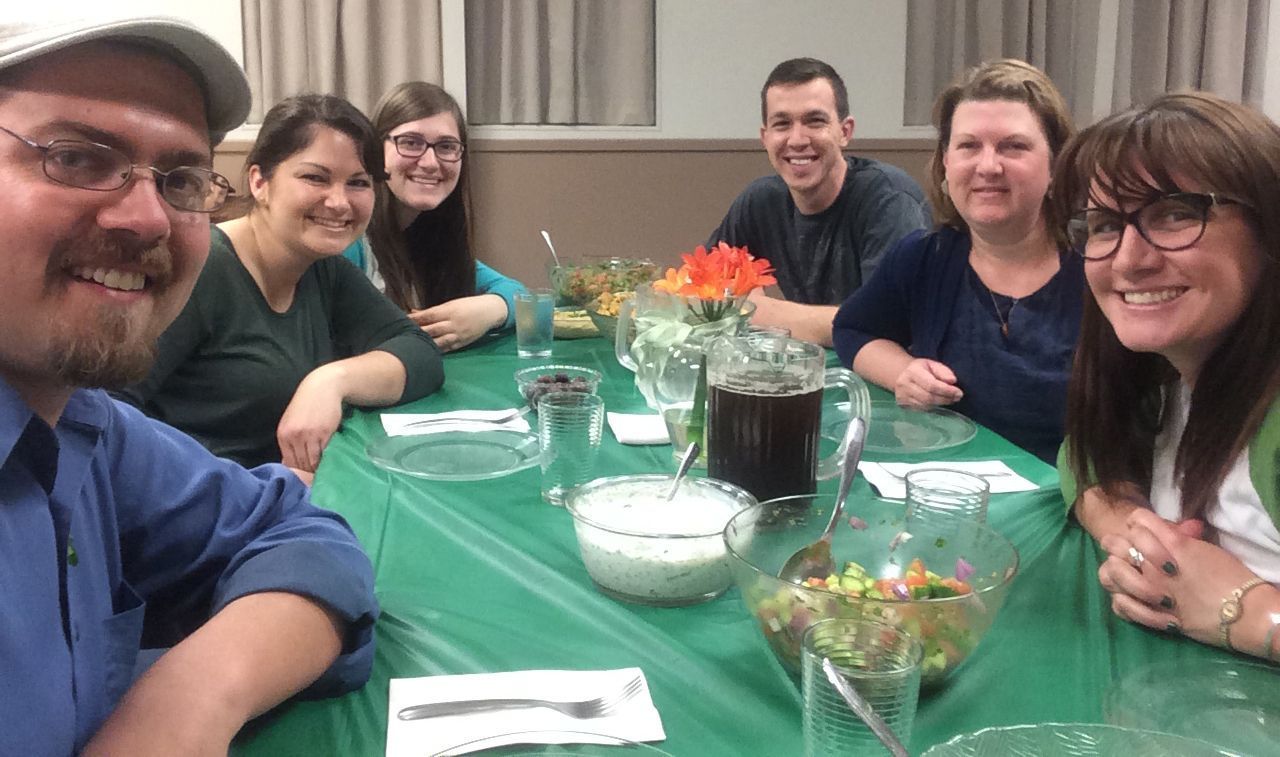
How to grow missionaries from your congregation(s)
By Lois Thorpe, former SEND missionary to Ukraine — I’m an idealist. And often a perfectionist. I have found this is a bad combination for effective ministry.
I had long wanted to have a missions group at my church in Southern California. It would be for people who were preparing for full-time, cross-cultural ministry. It would be for prayer and accountability. It would be a group that encouraged those on the journey of raising funds to go to the field. It would be a group where people could find a common vernacular because missions-speak can sometimes sound like a foreign language (partner development, furlough, TCK, UPG, etc.).
But I ran into obstacles every time I tried to plan such a group. My church didn’t seem big enough to support a group that would have built-in turnover as people left for the field. There didn’t seem to be enough people committed to long-term, cross-cultural ministry. People had different ideas of how often to meet or what to focus on. I didn’t feel qualified enough to do this alone. My list of excuses, fueled by my idealism, was not short.
Fast-forward several years. I kept my finger on the pulse of who in our church was interested in missions. I tried to get to know these people and encourage them in their journeys. But it still wasn’t a group; it was one-on-one fellowship.
I started to have conversations with people outside of our congregation about my group idea, and I began to realize it was possible if I started looking at it differently. I partnered with another missions-minded person in our network of churches and we decided to pool not just our two churches, but all the local churches within our network. It was like the light bulb finally turned on. This might work.
We began meeting and making lists of people in our churches who had expressed serious interest in cross-cultural ministry abroad. We began thinking about a central place to meet. We invited church leaders to participate in the conversation. After a few months of planning, we finally invited people to our first meeting.
 Lois Thorpe, second from the right, and some other members of the Missions Story Group celebrate the send-off of a missionary who attended the group while she raised support and trained to go to the field.
Lois Thorpe, second from the right, and some other members of the Missions Story Group celebrate the send-off of a missionary who attended the group while she raised support and trained to go to the field.
Our Missions Story Group has been gathering for almost two years now. And to my amazement, it's still going strong. It’s a group with connections and informal accountability. We pray for one another. We talk about things we have in common and can learn from one another. We walk with people as they figure out how to raise money and how to partner with their senders. We discuss topics that will hopefully prepare them for future cross-cultural ministry.
We have focused on five principles to make our Missions Story Group successful:
We create space for safe discussion.
It’s not a missiology lecture. It’s not a teaching time. It’s a time to talk together around a planned theme. Often we invite missionaries to discuss a topic they have experience in, but we ask them to lead a discussion rather than lecture about their knowledge.
We value shared experience.
We cook dinner together and clean up together. We don’t invite participants into a polished program. We get to know one another through the time we spend in the kitchen and through conversations as we clean up. Our relationships make our discussions even better.
We let the group guide the group.
We’ve asked our participants where they feel they need to grow. We may plan the meetings, but we do it based on feedback from the group and observations we have made. We don’t have an “expert” make all the decisions or do any “teaching.”
We invite guests to share.
We realize that our missions experience is not the end all. We want to hear from people in different parts of the globe, in different spheres of ministry, in different stages of life. Some of our discussions with missionaries have been about team relationships, working with/under nationals, and third-culture kids. We’ve watched films with cross-cultural applications.
We keep our eyes open for new people to invite.
So far we’ve sent three people off to the field. Each time this has felt like a loss in the group, but it’s the nature of what we’re trying to do. At the same time, we’ve been able to invite a few other people in as they have come to our attention.
These principles may be outside of your comfort zone, and they definitely take more time than planning a lecture or buying pizza for the group. This group doesn’t look like my idealist, perfectionist concept, but it has been even better in reality. We continue to be encouraged by the 10 or so participants who regularly come and the seven churches they represent.
I challenge you to think about starting a group within your local church(es) for people who are considering missions. Yours might look completely different than ours. If you can’t make this work now, pray that someday this will happen. In the meantime, get to know the people who have expressed interest in cross-cultural ministry. Take them to lunch or meet them for coffee. Even if your missions experience is limited, take the opportunity to walk with them and grow together. Encourage them that they are not alone in their missions journey.
About the author: Lois Thorpe served with SEND at Kyiv Theological Seminary in Ukraine for 10 years. Her missions experience also includes working as the missions coordinator at her church and teaching English in South Korea. And the other "missions-minded person in our network of churches" that she partnered with to start the Missions Story Group? She's getting married to him next month.
More on becoming a missionary
- 5 myths of the missionary call — Rethinking when and how God draws people into cross-cultural service.
- 5 more missionary myths — Don't let these common misconceptions stand in your way of growing God's family.
- Developing church missions — A set of resources to help any church, big or small, engage the congregation with missions and develop new missionaries.
- Considering missions — Questions to ask as your discern God's leading.
- Why go with SEND — Some of the benefits your family will receive if you become missionaries with us.
Additional Posts




